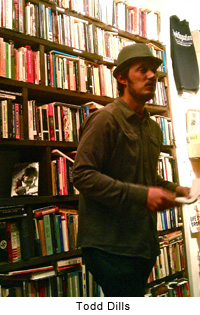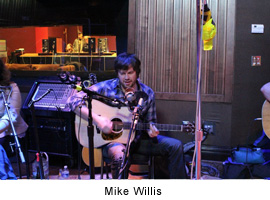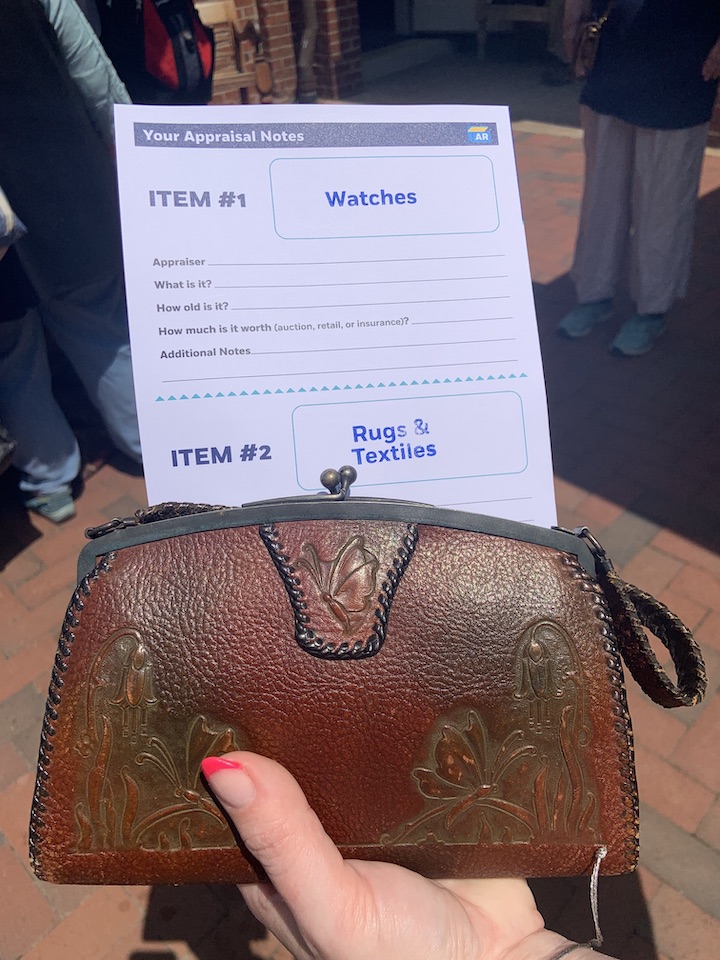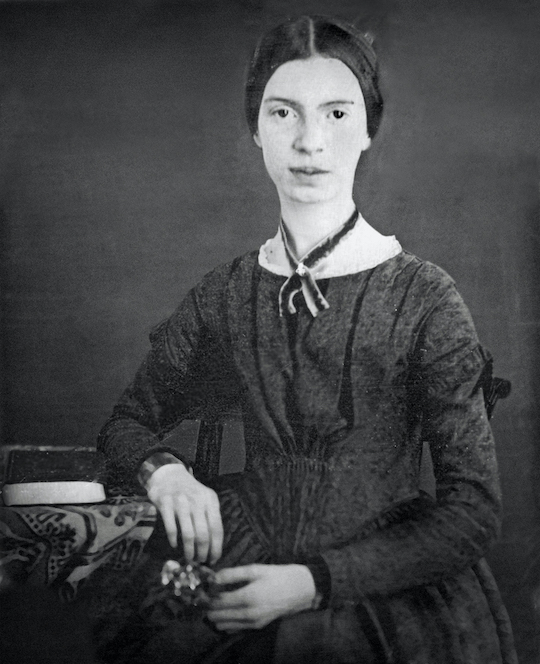A Writer’s Town
What can a fiction writer learn from a Nashville recording session?
I never much thought of Nashville as Music City, or Guitar Town, as it’s known to the highway haulers on the CB. My wife, novelist Susannah Felts, and I moved here in 2009 after three years in Birmingham, Alabama. Before that, though, I had spent nearly a decade in Chicago, where everybody I knew was a prose writer of some sort. I ran a literary magazine, and the well from which to draw for it was massive. With the writers I met there, planning readings and collaborating on fiction, I passed my twenties with, er, literary gusto. It was a dream life, looking back.
Compared to Chicago, Birmingham was a bomb blast of writerly disappointment. Not that my expectations were high: I’d moved there to work as a journalist for a trucking-biz magazine I still write for today. When we had a kid, I convinced my employers I could keep up the mark in a satellite home office in Nashville, where my wife grew up and still has family. I didn’t have high expectations for this change, either, but in a small way I quickly relocated something I’d lost in the years since Chicago.
I spend a lot of time in the coffeehouses of East Nashville, where we live. “What do you do?”—the question has been posed to me countless times in idle conversation. My stock response, “I write,” is invariably followed by some permutation of “What instruments do you play?” Nashville is a writer’s town par excellence when you add “song” to the vocation. Everybody gigs around in some barroom or has a deal with one of the music-publishing outfits here, or wants to. These coffeehouse denizens bleed a creative energy that felt familiar, and I lapped it up, seeking fellow fiction writers in the manner I’d pursued in Chicago. And I had some success. A reading series I launched had a yearlong run; fiction writers came through town at my instigation several different times; I worked on my own stuff. And along the way I met Mike Willis.
 He’s not a fiction writer but one of those guys with a music-publishing deal, earnest and outgoing in a manner I’ve witnessed in others but could never quite muster in myself. My first impression of him was filtered through the lens of calcified musical taste—my own, which tends toward experimentalism, jazz and indie rock and hip-hop. Some mostly forgotten night, Susannah and I ended up in the front room of the Willises’ house, and soon enough Mike’s guitar was out. He crooned his way through several original tunes for the kids in attendance, and for the rest of us. As a writer, he naturally tends toward R&B-tinged pop, lots of major chords, traditional song structures. His voice is something else, for sure, nothing like whatever meager musicality (mostly shouting and screaming, frankly) I once tried to muster in several different punk-hardcore bands growing up in Rock Hill, South Carolina. He was obviously a pro, though his kind of stuff just wasn’t my bag.
He’s not a fiction writer but one of those guys with a music-publishing deal, earnest and outgoing in a manner I’ve witnessed in others but could never quite muster in myself. My first impression of him was filtered through the lens of calcified musical taste—my own, which tends toward experimentalism, jazz and indie rock and hip-hop. Some mostly forgotten night, Susannah and I ended up in the front room of the Willises’ house, and soon enough Mike’s guitar was out. He crooned his way through several original tunes for the kids in attendance, and for the rest of us. As a writer, he naturally tends toward R&B-tinged pop, lots of major chords, traditional song structures. His voice is something else, for sure, nothing like whatever meager musicality (mostly shouting and screaming, frankly) I once tried to muster in several different punk-hardcore bands growing up in Rock Hill, South Carolina. He was obviously a pro, though his kind of stuff just wasn’t my bag.
But things were working in our favor. One, we’re both Georgia Bulldogs fans—Mike grew up in Atlanta and attended the school briefly; my dad went there and raised me on a steady diet of Herschel Walker, Vince Dooley, and 70s junkyard-dawg lore. It’d been more than ten years since I’d spent any significant amount of time around an actual Georgia football fan. My Chicago friends thought my fascination with it endearingly rural and quaint. And in Birmingham…. (You can thank me now for not getting started on Alabama and football.) Soon enough, the 2010 season brought me into contact with several other songwriters—all UGA fans—among a crew Mike had amassed of like-minded sorts. We talked about writing and—central to the act of creation for Mike and me, at least—about the marketing of such, how exactly one would get this story or song before the eyes or ears of other humans.
In April the following year we held a trial run of Story/Song, an event that we hoped might create a cross-pollination of sorts, bringing together Nashville-based prose writers and songwriters in alternating performances. While it never went beyond the one-off, the night put me in touch with still others among Mike’s crew. Later that year, he brought many of those songwriters and performers together for the first show of the Cumberland Collective—another thing that made the worm begin to turn in my mind about Mike Willis and his music.
For years I’ve been a proponent of the mostly-DIY mode of arts production, an ethos translated from those punk-hardcore bands to the lit mag and then on to books. While a small press put out my 2006 novel, I was more or less on my own in setting up a tour, and I made more money selling copies of the book myself than I ever saw in the form of a check from the press. All my other book projects have been at my own instigation, produced with my own time and cash.
 The advantage of the DIY model, as Mike says, is “being able to do these things on your own terms.” He should know: in the past ten years, he’s put out seven records almost entirely by himself, and the Cumberland Collective is charting a similar course, quite a feat for a ten-to-fifteen-piece band. In a world where art is increasingly produced, distributed, and consumed digitally, “intellectual property will be king,” Mike believes: for creators of all stripes, ownership of artistic product, the capital-C content in marketing speak, and direct control of its distribution is becoming more and more of a norm. Musicians are further along in exploring the viability of this new publishing model, but for prose writers and poets here in Nashville, the influence of musicians could well bring more change in the coming years.
The advantage of the DIY model, as Mike says, is “being able to do these things on your own terms.” He should know: in the past ten years, he’s put out seven records almost entirely by himself, and the Cumberland Collective is charting a similar course, quite a feat for a ten-to-fifteen-piece band. In a world where art is increasingly produced, distributed, and consumed digitally, “intellectual property will be king,” Mike believes: for creators of all stripes, ownership of artistic product, the capital-C content in marketing speak, and direct control of its distribution is becoming more and more of a norm. Musicians are further along in exploring the viability of this new publishing model, but for prose writers and poets here in Nashville, the influence of musicians could well bring more change in the coming years.
This past March, Mike invited me out to a three-day recording session at Blackbird Studios. I wasn’t the only outsider there: packed inside the control room with a window on the big band, I counted upward of thirty people hanging on, some dancing, at the apex of what amounted to a working party, a happening. The group laid down enough tracks for three full-length records.
The energy of the days bore fruit for me, too, pushing me outside the bounds of my default quixotic first-person style to an experimental short story that answered a question Mike raised in inviting me: What exactly can a fiction writer do with a recording session? Answer: He can write. The end result riffs on lines from the songwriters’ diverse tunes. (Click here to read it.)
Even before that recording session, Mike came to me with an idea for a song. He had a title, “Don’t Tempt the River,” a first line, and the basic schematics of the plot. He was pushing for story, something outside his own default formal-pop mode. Not knowing where to begin with story-song myself, I did what came naturally and wrote a piece of fiction. The end of that process was a haunting sort of spoken-sung dirge, totally unlike anything I’d heard from Mike. He has mixed feelings about the results—he’s never performed the song. But he’s optimistic that these efforts will bear real fruit in further endeavors. “Stuff that initially hits me as not working exactly right,” he says, “when I go back to it in time I often see that it’s genius.” A truism, no doubt, that prose writers will recognize.
Is Nashville a writer’s town? Mike thinks so. “There is no better place on the planet to make music,” he says. About prose writers, though, he’s not so sure. “Do you meet people routinely you want to learn from as a writer?” he asks me.
I hesitate. It’s true that at this point my wife and I have met no shortage of fiction writers in this town—and some very good ones, at that, with whom we’ve lately established a group that shares work monthly to spur us all to create, to get on with projects in the face of the day-to-day business of living. But there was certainly a time in very recent memory where I would have responded with an unqualified, “No.” More and more, I sense that it’s with people like Mike Willis, the city’s songwriters, where the greatest educational, collaborative, inspirational opportunities for writers may lie.
I won’t be going back to Chicago any time soon.
Todd Dills will read from Triumph of the Ape on May 21, 2013, at 7 p.m. at Fat Bottom Brewery in Nashville. He will be joined by Mike Willis. The free event is part of the East Side Storytellin’ series, which pairs writers and musicians in performance.


